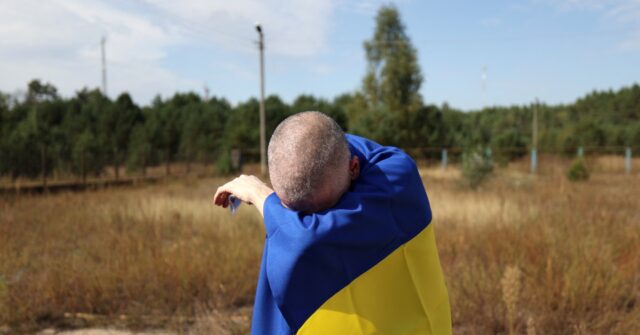The ongoing conflict between Ukraine and Russia has escalated recently, with claims of atrocities committed against Ukrainian prisoners of war. Ukraine’s human rights ombudsman, Dmytro Lubinets, has called on international organizations to investigate reports that several Ukrainian POWs were executed by Russian troops in the Kursk region shortly after surrendering. This claim was highlighted by DeepState, a battlefield analysis organization associated with Ukraine’s Defense Ministry, which asserted that nine Ukrainian drone operators were shot dead by Russian forces on October 10. Lubinets has communicated with the United Nations and the International Committee of the Red Cross in an effort to highlight what he labels as another serious violation of human rights attributable to Russian actions in the conflict.
This incident echoes previous reports of Russian troops executing captured Ukrainian soldiers, a concern voiced by Ukraine’s Prosecutor General’s Office, which detailed that 16 soldiers had been killed in the Donetsk region earlier this month. These acts of violence amplify the ongoing discourse surrounding war crimes committed amid the brutal conflict. As the situation develops, there has been no immediate response from Russian officials regarding these allegations, underscoring the complexities of international communication during wartime.
In terms of military engagement, the Ukrainian air force reported an intense nighttime assault, claiming to have downed 31 out of 68 drones launched by Russia. The regions of Kyiv, Poltava, Chernihiv, Sumy, and Cherkasy were the focal points of these aerial threats. In addition to the downed drones, multiple ballistic missiles struck targets in Odesa and Poltava, which were met with resistance from Ukrainian defense systems. Local authorities reported no casualties or damage resulting from these strikes, although the continual bombardment reflects the aggressive tactics employed by Russian forces.
Ukrainian President Volodymyr Zelenskyy emphasized the severity of the situation, revealing that Russia had deployed approximately 900 guided aerial bombs, more than 40 missiles, and 400 drones over a single week. These figures paint a picture of an escalation in Russian military activity, which highlights the urgent need for increased defense support from Ukraine’s allies. Zelenskyy has actively sought assistance on social media, appealing for both the quantity and quality of air defense systems, as well as the necessary considerations regarding the range of weaponry that can be utilized against Russian targets.
While Ukraine maneuvers to strengthen its defensive capabilities, Russia has also reported intercepting Ukrainian drones. The Russian Defense Ministry claimed to have downed 13 drones across Belgorod, Kursk, and Bryansk, regions that border Ukraine. This exchange underscores the active hostilities occurring on both sides of the conflict and the escalating intensity of military confrontations as each nation seeks to maintain its strategic advantage.
The calls for international scrutiny into human rights violations alongside the heavy bombardments and military tactics characterize the ongoing struggle in Ukraine as not just a matter of military objectives, but also a humanitarian crisis. With the international community closely monitoring the developments, the focus remains on finding pathways to reduce violence while addressing the grave allegations surrounding the treatment of prisoners of war. The resolution of this conflict and the safeguarding of human rights will depend significantly on international involvement and support for Ukraine in navigating its complex geopolitical landscape.

